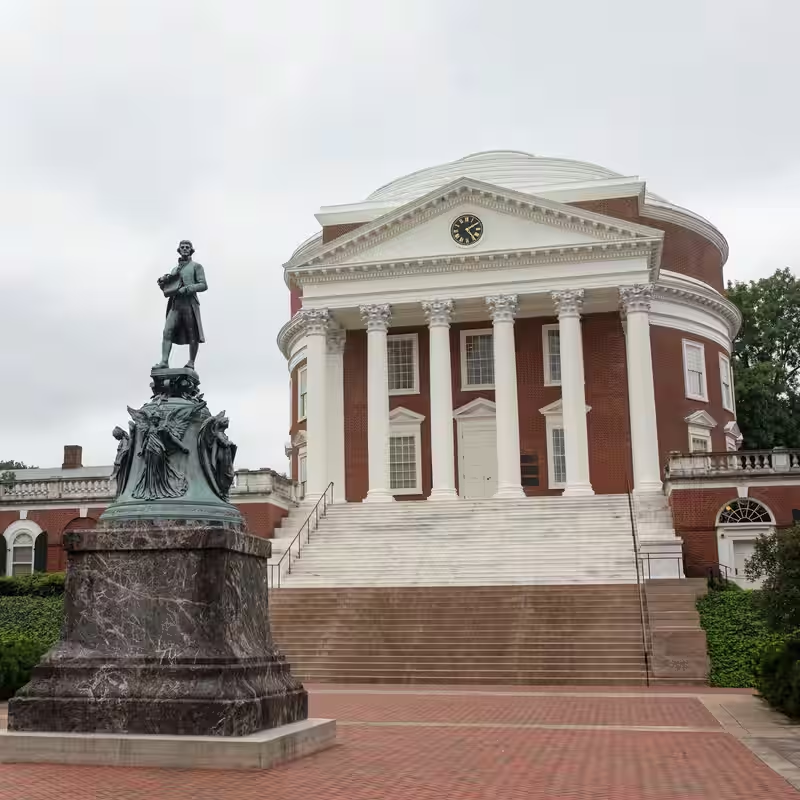Table of Contents
- Trump-UVA Deal Signals New Education Strategy
- How Government Pressure Forced a President Out
- What’s in the Proposed Agreement?
- Part of a Larger Crackdown on Campus Ideology
- Faculty and Students React with Concern
- Sources
Trump-UVA Deal Marks First Public University Settlement
The Trump administration is on the verge of finalizing a landmark agreement with the University of Virginia (UVA), marking the first time a public university has reached a settlement under the White House’s aggressive campaign to reshape higher education.
According to five people briefed on the matter, the deal is currently under internal review at the White House as of Tuesday, October 21, 2025. If approved, it would end a four-month standoff that began when federal pressure led to the resignation of UVA’s former president in June.
This move signals a major escalation in the administration’s efforts to influence campus culture, curriculum, and governance—extending its reach beyond elite private institutions like Brown, Columbia, and the University of Pennsylvania to America’s public university system.
How Government Pressure Forced a President Out
The conflict began in early 2025 when the Department of Education and the White House launched a series of investigations into UVA over alleged “anti-conservative bias” in hiring, student discipline, and academic programming.
By June, the scrutiny intensified. Federal officials reportedly threatened to withhold billions in research grants and federal student aid unless the university made “structural reforms.” Days later, UVA President James E. Ryan stepped down, citing “personal reasons”—though multiple insiders confirmed the resignation came under direct pressure from Washington.
His departure sent shockwaves through academia, with critics warning it set a dangerous precedent for political interference in public education.
What’s in the Proposed Agreement?
While full details remain confidential, sources say the proposed deal includes several key provisions:
- Mandatory viewpoint diversity training for faculty hiring committees
- Creation of a “free speech compliance officer” reporting directly to the Board of Visitors
- Annual audits of course syllabi for “ideological balance” in social sciences and humanities
- Establishment of a conservative speakers fund, matched by federal grants
Importantly, the agreement would also require UVA to submit quarterly reports to the Department of Education—a level of federal oversight unprecedented for a public university.
Part of a Larger Crackdown on Campus Ideology
The UVA deal is the latest in a string of similar settlements. Since early 2025, the Trump administration has secured agreements with Brown, Columbia, and the University of Pennsylvania—though those are private institutions not subject to the same constitutional constraints as public universities.
Legal scholars warn that applying such terms to a state-funded school like UVA could raise First Amendment and academic freedom concerns. “This isn’t just policy—it’s coercion,” said Dr. Miriam Cho, a constitutional law professor at Georgetown. “Public universities are arms of the state. You can’t strong-arm them into ideological conformity without violating core democratic principles.”
Faculty and Students React with Concern
Inside UVA, reactions have been mixed but largely apprehensive. The Faculty Senate issued a statement expressing “deep reservations” about external mandates on curriculum and hiring.
Student groups, including the College Republicans and the ACLU at UVA, have both voiced opposition—albeit for different reasons. “We support free speech,” said one student organizer, “but not when it’s dictated by Washington bureaucrats with an agenda.”
Meanwhile, conservative advocacy groups have praised the move. “Finally, public universities are being held accountable,” said a spokesperson for the American Council of Trustees and Alumni.
As the White House reviews the final terms, all eyes are on Charlottesville—where the historic university now stands at the center of a national debate over the future of academic independence.
Sources
The New York Times: White House Moves Toward Settlement With First Public University




